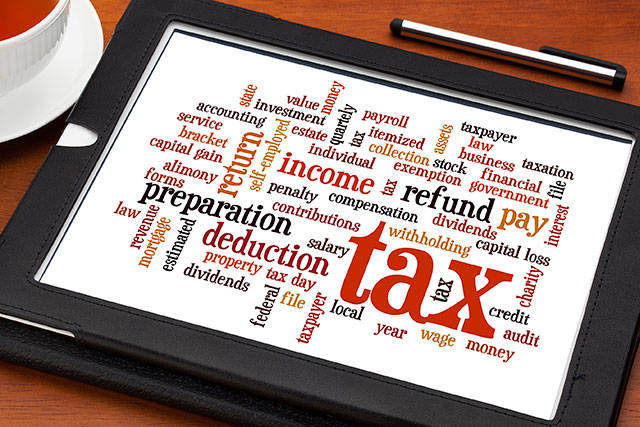King County Assessor John Wilson launched on Wednesday a new Taxpayer Transparency Tool, a website which provides each county resident an individualized accounting of where their property tax dollars go, and the estimated cost of any proposed property tax levy to be voted on.
The new tool can be found at http://localscape.spatialest.com/#kingcountyassessor/Tax.
The tool was tested on a ballot measure in April during the special election and will be widely available for the ballot measures appearing in the August primary, including the proposed renewal levy for the Automated Fingerprint Identification System (AFIS), according to a county media release. All county residents will be able to see how this AFIS renewal levy will affect their tax bill, while residents in the South King County Fire and Rescue District (Federal Way area) can also see how the proposed levy lid lift will impact them.
“Taxpayers have a right to know where their money is going, and what each proposed property tax levy will cost them,” Wilson said in the release. “Property taxes keep going up. We need to make sure the public understands why.”
Wilson said there were several factors that led him to create this new tool:
• The property tax system in Washington State is complicated. This new tool allows voters to make informed decisions about ballot measures, and helps illustrate how the tax system works.
• The Assessor’s Office receives a number of inquiries via phone and email in the lead up to voting on property tax measures by residents wanting to know how much these measures will cost them. This tool will be an efficient and effective way to answer these questions, as residents can find the answer on-line whenever it is convenient for them – not just during normal business hours.
King County taxpayers have seen significant increases in their taxes this year. There are two primary reasons for this increase:
• In recent years, voters have approved ballot measures that will fund vital services through property tax levies.
• Last year state lawmakers voted to dramatically raise the state share of the property tax in order generate more school funding to satisfy the Supreme Court order in the McCleary case. In 2019, local school levies will be reduced, offsetting part of that increase. But in 2018, taxpayers will pay both their current school levy, and the new, increased state property tax. That led to a big spike in the property tax bill in 2018.
“We are working on policy proposals to relive some of the property tax burden on homeowners, especially those on fixed income. In the meantime, the least we can do is give taxpayers more information about our complicated property tax system,” Wilson said.



